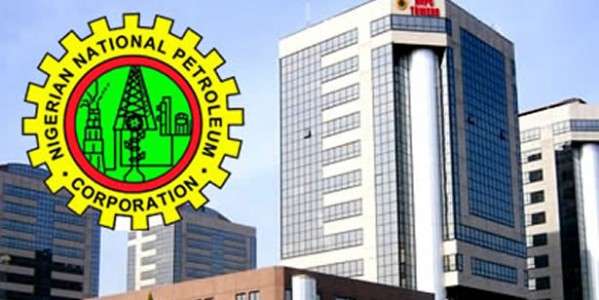Business
NNPC again imports 100% of petrol consumed in August

The Petroleum Products Pricing Regulatory Agency (PPPRA) has revealed that the Nigerian National Petroleum Corporation (NNPC) imported 100 per cent of 1.74 billion Premium Motor Spirit, popularly called petrol consumed in the month of August 2021.
In a statement published on its website, the General Manager, Corporate Services, PPPRA, Kimchi Apollo noted that the August figure showed a decrease of about 132,301,071 litres when compared to the 1,867,925,811 litres supplied in the month of July.
He noted further that the 1.74 billion barrels of petrol consumption in August indicated an average daily supply of about 55.99 million litres.
“The total truck-out volume for PMS was 1.79 billion litres, therefore, the average truck-out volume of PMS was 57.58 million litres per day,” it added
The petroleum products pricing regulator also stated that the country had an average PMS Days Sufficiency of 33 days.
READ ALSO: NNPC enmeshed in contract-bidding fraud as clash of interests emerges amongst directors
“It is important to note that the decline in the volume of PMS supplied in the month of August does not in any way translate to product scarcity,” PPPRA stated.
The agency said it would continue to monitor and advise relevant stakeholders to ensure continued product availability.
Ripples Nigeria had earlier reported that NNPC in 2020, paid workers at its three refineries the sum of N69.07 billion.
The plants, which are located in Port Harcourt, Kaduna and Warri, have a combined installed capacity of 445,000 barrels per day but have been in a state of disrepair for many years.
Kaduna Refining and Petrochemical Company reported it spent on Sslaries, wages and other fringe benefits of N26.02bn in 2020 from N34.52bn in 2019.
While Port Harcourt refinery put its aggregate payroll costs (wages, salaries and allowances, redundancy and pension costs) at N22.55bn, up from N18.62bn a year earlier.
Warri refinery said its aggregate costs of employees, comprising direct labour cost and indirect labour and staff welfare cost, dropped to N20.51bn last year from N30.86bn in 2019.
Join the conversation
Support Ripples Nigeria, hold up solutions journalism
Balanced, fearless journalism driven by data comes at huge financial costs.
As a media platform, we hold leadership accountable and will not trade the right to press freedom and free speech for a piece of cake.
If you like what we do, and are ready to uphold solutions journalism, kindly donate to the Ripples Nigeria cause.
Your support would help to ensure that citizens and institutions continue to have free access to credible and reliable information for societal development.
























